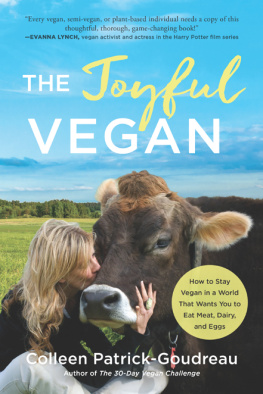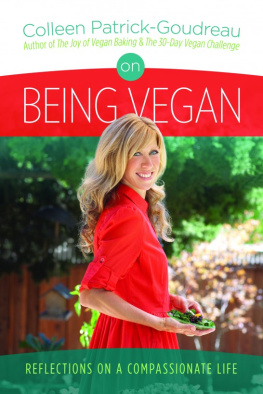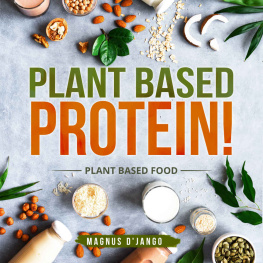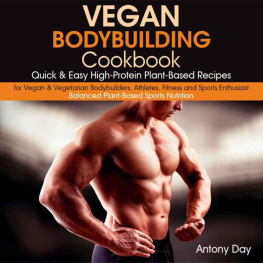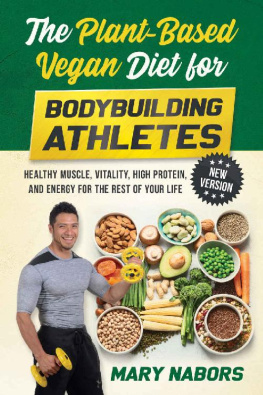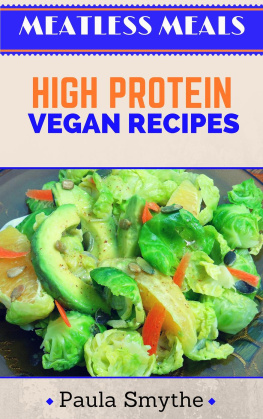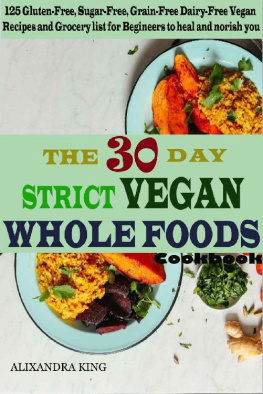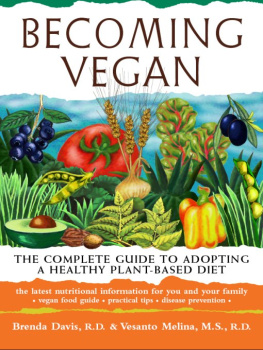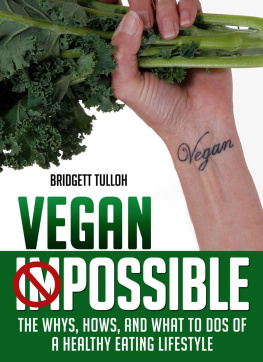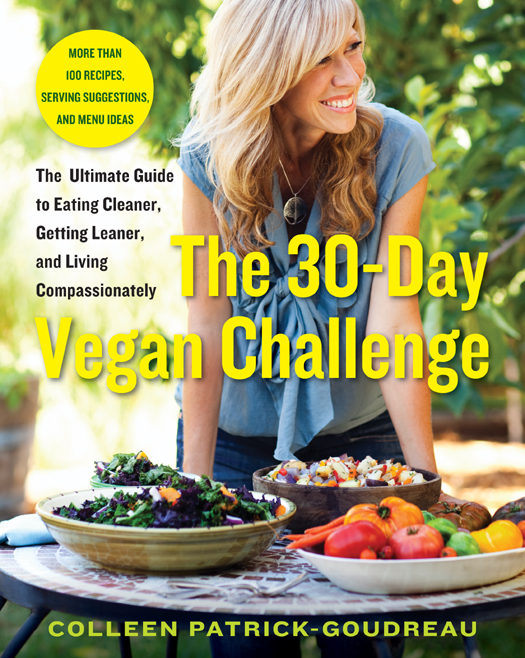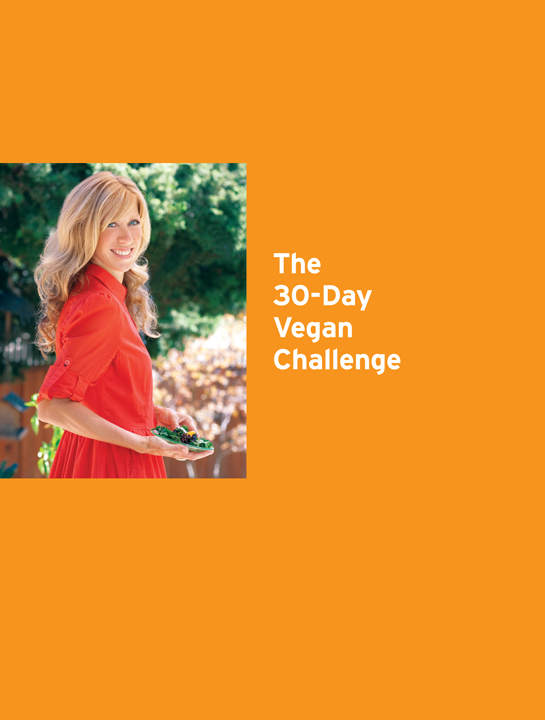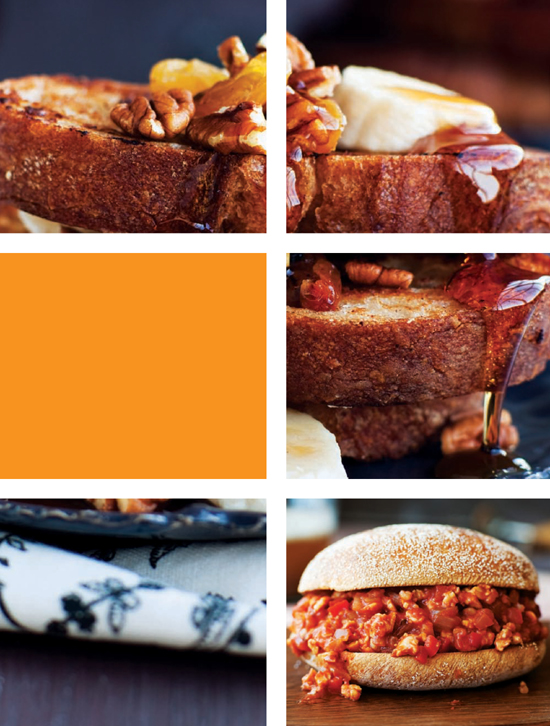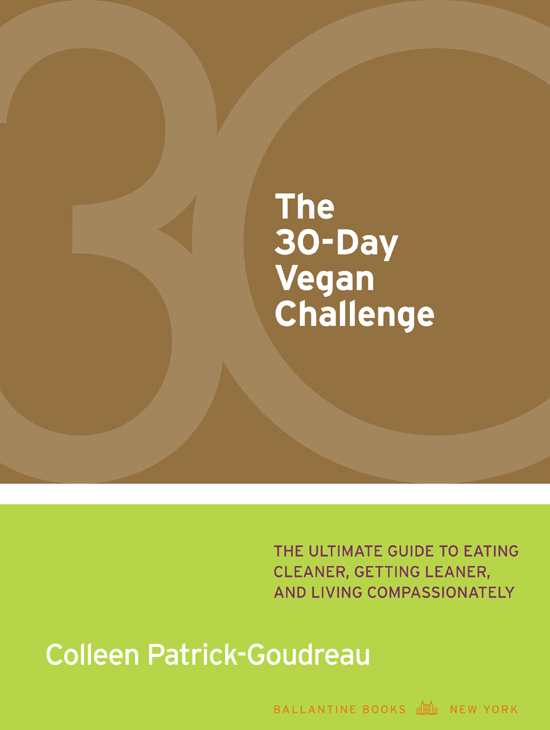ALSO BY COLLEEN PATRICK-GOUDREAU
The Joy of Vegan Baking: The Compassionate Cooks
Traditional Treats and Sinful Sweets
The Vegan Table: 200 Unforgettable Recipes for
Entertaining Every Guest at Every Occasion
Color Me Vegan: Maximize Your Nutrient Intake and
Optimize Your Health by Eating Antioxidant-Rich,
Fiber-Packed, Color-Intense Meals That Taste Great
Vegans Daily Companion: 365 Days of Inspiration for
Cooking, Eating, and Living Compassionately
No book can replace the diagnostic expertise and medical advice of a trusted physician. Please be certain to consult with your doctor before making any decisions that affect your health or extreme changes in your diet, particularly if you suffer from any medical condition or have any symptom that may require treatment.
A Ballantine Books Trade Paperback Original
Copyright 2011 by Colleen Patrick-Goudreau
Photographs 2011 by Sara Remington
All rights reserved.
Published in the United States by Ballantine Books,
an imprint of The Random House Publishing Group,
a division of Random House, Inc., New York.
B ALLANTINE and colophon are registered trademarks of Random House, Inc.
LIBRARY OF CONGRESS CATALOGING-IN-PUBLICATION DATA
Patrick-Goudreau, Colleen.
The 30-day vegan challenge : the ultimate guide to eating cleaner,
getting leaner, and living compassionately / Colleen Patrick-Goudreau.
p.cm.
Include index.
eISBN: 978-0-440-42367-6
1. Vegetarianism. 2. Veganism. 3. Vegan cooking. 4. Diet therapy. 5. Nutrition.
6. Health. I. Title. II. Title: Thirty day vegan challenge.
TK392.P38 2011 613.2622dc23 2011017446
www.ballantinebooks.com
Katie Christ: food styling
Nissa Quanstrom: prop styling
v3.1_r1
To my husband and fellow joyful vegan, David Goudreau,
whose unshakable support and unconditional love
are the foundation on which I stand
Foreword
In all likelihood, you have already made a spirited decision to accept the 30-Day Vegan Challenge and embark on what may very well be the journey of your life. While at this moment it may seem rather daunting, fear not; you could not have chosen a wiser way to begin.
The 30-Day Vegan Challenge is no ordinary book; it is an extraordinary vehicle of change that is beautifully crafted to offer every morsel of support imaginable as you venture through what may feel like unfamiliar territory. While your head may be spinning with questions, I can assure you that each and every one of those questions will be thoughtfully addressed in the pages that follow. Take a deep breath and know that you are in very capable hands.
My personal experience is as a registered dietitian. When I first decided to become vegan in the late 1980s, I was employed as a public health nutritionist. I was not sure if there was another vegan dietitian on the planet. I thought that once the truth was uncovered, I might very well be ousted from the profession. I wondered how I could remain in a career that had at its very foundation four food groups, two of which were animal-based. The only reference to vegan diets made during my entire university training was a stern warning that such extreme regimes were downright dangerous. After considerable soul-searching, I decided that I would stick with my chosen profession and make no apologies for my ethical choices. I decided that the balance of my career would be spent helping to ensure that those who had chosen a similar path would have the necessary nutrition information to succeed brilliantly.
With each passing year, the evidence in favor of plant-based diets grows stronger. Today, even the most conservative medical and dietetic organizations in the world acknowledge the safety, adequacy, and health benefits associated with vegan diets. This shift is solidly reflected in the marketplace, where mainstream manufacturers are increasingly using the word vegan on labels to sell their product. It is quite possible that these companies could find no single word that better captures the ideals consumers are seeking outhealthful, wholesome, responsible, ethical, and eco-friendly.
The evidence is quite clear that vegans have lower body mass indexes and are at reduced risk for most chronic diseases, including heart disease, hypertension, type 2 diabetes, and some forms of cancer. These are the very things that fill our doctors offices, hospitals, and graveyards. We live in a food environment that is essentially toxic. The incontrovertible fact is that our food system is responsible for the vast majority of our health care expenditures. Well-planned vegan diets produce a dramatic shift in this paradigm. And while the personal health benefits of vegan diets are impressive, their consequences beyond personal health are perhaps even more compelling.
Adopting a vegan lifestyle is arguably the most powerful step any one individual can take toward the preservation of this planet. It takes about one-twentieth the resources to feed a vegan that it takes to feed a non-vegetarian. Intensive animal agriculture is simply not sustainableit pollutes the air, the water, and the soil, and it is among our greatest contributors to deforestation, desertification, and species extinction. A 2008 award-winning study by researchers at Carnegie Mellon University found that our carbon footprint is more effectively reduced by eating 100 percent vegan one day a week than by eating 100 percent local seven days a week.
Perhaps the most gripping argument of all is that of ethics. Despite the fact that compassion is a guiding principle in all the worlds religions and even in secular philosophies, the primary message we receive by the time were adults is that compassion is acceptable as long as it is conditional and reserved only for certain groupsand species. One could argue that the process of turning innately compassionate children who identify deeply with animals into desensitized adults who participate directly and indirectly in violence against animals is what keeps us from being the fully enlightened, unconditionally compassionate human beings we are meant to be. Operating within the boundaries of selective compassion, we cannot but feel a weight on our minds and in our hearts.
Dr. Albert Schweitzer, one of the greatest humanitarians of all times, once predicted that the time is coming when people will be amazed that the human race existed so long before it recognized that thoughtless injury to life is incompatible with real ethics. Ethics is in its unqualified form extended responsibility with regard to everything that has life.
Perhaps that time is here. Perhaps we need to put an end to viewing animals as resources to use as we please. The use of animals for human consumption is a cruel custom that is deeply entrenched in tradition and is both unnecessary and unjustifiable. Each and every one of us who dreams of a kinder, gentler world, who shares Schweitzers vision of real ethics, has the capacity to turn thoughts into actions and to bring us a little closer to this reality. By picking up this book, you have taken the first courageous step toward this end.


